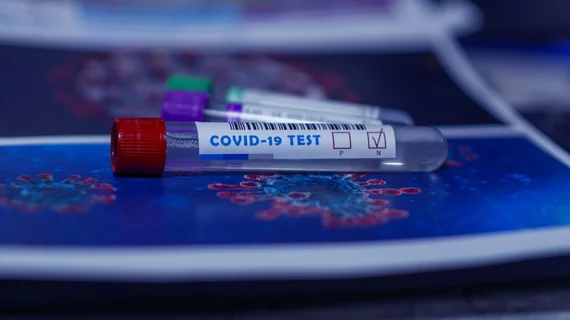Statin use prior to hospital admission benefits COVID-19 patients
Hospitalized COVID-19 patients are less likely to experience severe symptoms if they were taking statins prior to being admitted, according to a new observational study published in the American Journal of Cardiology. Statin use prior to admission was also associated with a faster time to recovery.
Individuals with underlying cardiovascular disease (CVD), hypertension, and diabetes have been identified as groups at particularly high risk for developing severe COVID-19,” wrote lead author Lori B. Daniels, MD, UC San Diego Health in La Jolla, California, and colleagues. “Because a large proportion of patients with these conditions are on statins and either angiotensin-converting enzyme (ACE) inhibitors or angiotensinogen II receptor blockers (ARBs), there has been speculation about whether these cardiovascular medications may influence COVID-19 risk.”
The authors tracked data from more than 5,000 patients hospitalized at a single healthcare facility from Feb. 10 to June 17, 2020. The cohort included 170 patients hospitalized for COVID-19, with all other patients serving as COVID-negative controls.
Among the patients hospitalized for COVID-19, 56% were obese, 44% had a history of hypertension, 21% had CVD, 20% had diabetes, 18% had chronic kidney disease and 14% had cancer. Also, 27% of hospitalized COVID-19 patients were actively taking statins when first admitted, 21% were taking an ACE inhibitor and 12% were taking an ARB.
Again focused on just patients hospitalized for COVID-19, statin use prior to admission was associated with a 71% reduction in the odds of developing severe COVID-19. Prior use of ACE inhibitors or ARBs, on the other hand, were not associated with such an impact. Results remained the same even when the researchers focused exclusively on patients who were treated in the ICU and required invasive mechanical ventilation.
“There is some biologic plausibility for a protective role of statins in COVID-19 through known anti-inflammatory and immunomodulator effects as well as via upregulation of ACE2 and direct effects on the virus,” the authors wrote. “Statins may inhibit SARS-CoV-2 infectivity by direct binding and inhibition of the main protease, a key coronavirus enzyme.”
Daniels et al. also emphasized that they were only examining the impact of taking these medications prior to being admitted for COVID-19.
“Our study did not evaluate the in-hospital use of statins, ACE inhibitors or ARBs and these data should not be extrapolated to the use of these medications for treating acute COVID-19,” they explained. “We also did not have reliable data on dose or duration of medication use; some of the effects of statins, ACE inhibitors or ARBs may be time-dependent. Similarly, with the present study design we are unable to assess the impact of statins, ACE inhibitors, or ARBs on susceptibility to COVID-19 infection, which would require widespread, systematic testing of asymptomatic individuals.”
The full study is available here.

